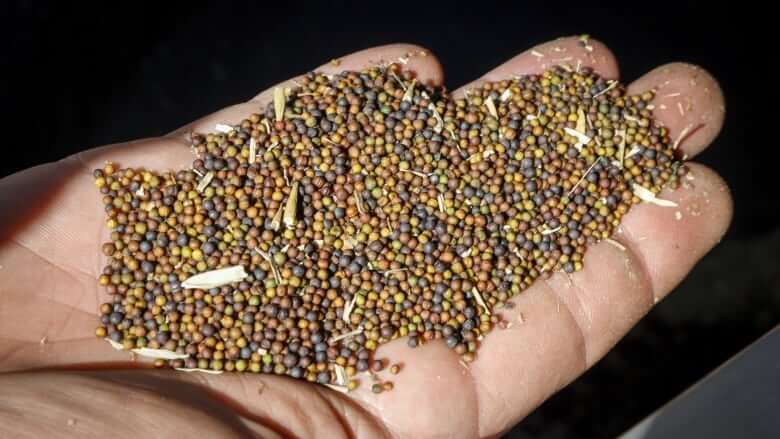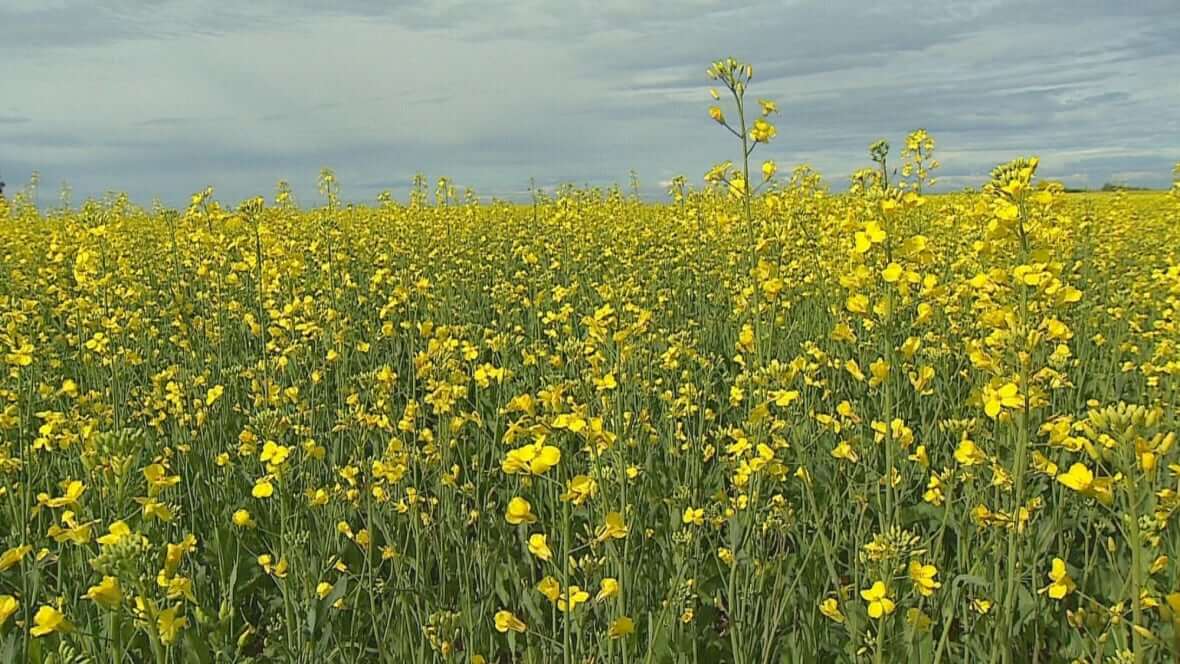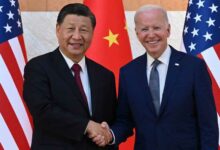Farm groups hope end of Meng Wanzhou case leads to resolution of canola dispute with China

Canadian farm groups are hoping to see a de-escalation of tensions with China that opens the door to resolving a long, costly trade dispute hanging over the country’s canola sector.
More than two years of bans and restrictions on canola to China are estimated to have cost Canada’s industry roughly $2 billion through lost sales and lowered prices.
The dispute boiled up in March 2019 amid rising diplomatic tensions over Huawei executive Meng Wanzhou’s detention in Vancouver and the subsequent arrests of Canadians Michael Kovrig and Michael Spavor in China.
Industry insiders hope relationships improve
As he welcomed the return of Kovrig and Spavor, the president of the Canola Council of Canada said he hopes resolving a major issue in Canada-China relations will lead to an environment where the trade issue can be settled.
“Our goal as an industry is to have predictable, rules-based trade with China and for all our export companies to be treated similarly in China,” Jim Everson said.
“The announcement last week, I think, really provides hope that there’s a new environment there and that … relationships, if you like, are improving that would allow that kind of discussion to continue to take place.”

China has been Canada’s second-largest market for agricultural exports over the last decade and, according to the Canada West Foundation, is the first or second-largest agricultural export market for each of the prairie provinces.
Canola has been a key part of that mix.
But China banned shipments from two Canadian companies, Viterra and Richardson International, in March 2019. At the same time, Beijing instituted a more aggressive regime of inspections, slowing trade with other Canadian shippers.
Canola seed exports to China, which were sitting at $2.8 billion in 2018 before the restrictions, have fallen to $800 million in 2019 and $1.4 billion in 2020, according to the canola council.
Canada is seeking to address the dispute through the World Trade Organization.
The president of the Canadian Federation of Agriculture said this week she hopes the recent developments between Canada and China lead to improved relations between the two countries.
“We certainly hope it leads to an environment that’s more conducive to resolving the outstanding canola trade issue and, in general, the Canada-China relations at large,” Mary Robinson said.
Export market diversification
But Robinson said the situation highlights the need for Canada to diversify its export markets as much as possible, noting opinions that linked the canola trade dispute to Meng’s detention.
“We’ve got to be cautious that similar tactics could be used in the future,” Robinson said. “We’ve got to go into all of these trade agreements with our eyes wide open.”
The canola sector isn’t the only one to raise concerns about China.
During the federal election, the Canadian Pork Council called on the next government to resolve trade barriers in China, saying it’s used “unscientific, unjustified policies” to restrict nearly two-thirds of Canadian pork processing capacity from accessing the country.
It has asked for the appointment of an assistant deputy minister dedicated to agriculture to Canada’s embassy in China, “to reinforce the importance of the trading relationship.”
Improved relations will take time
Gordon Houlden, director emeritus of the University of Alberta’s China Institute, said while there may be expectations for improved relations between two countries, he cautioned things likely won’t happen quickly.
“To say that things won’t recover, I think would be false. And to say that things will snap back like a rubber band and be where we were in November of 2018 is also false,” he said.
“It’s going to take a while for the bruises to heal and people to become less wary.”








Redes Sociais - Comentários